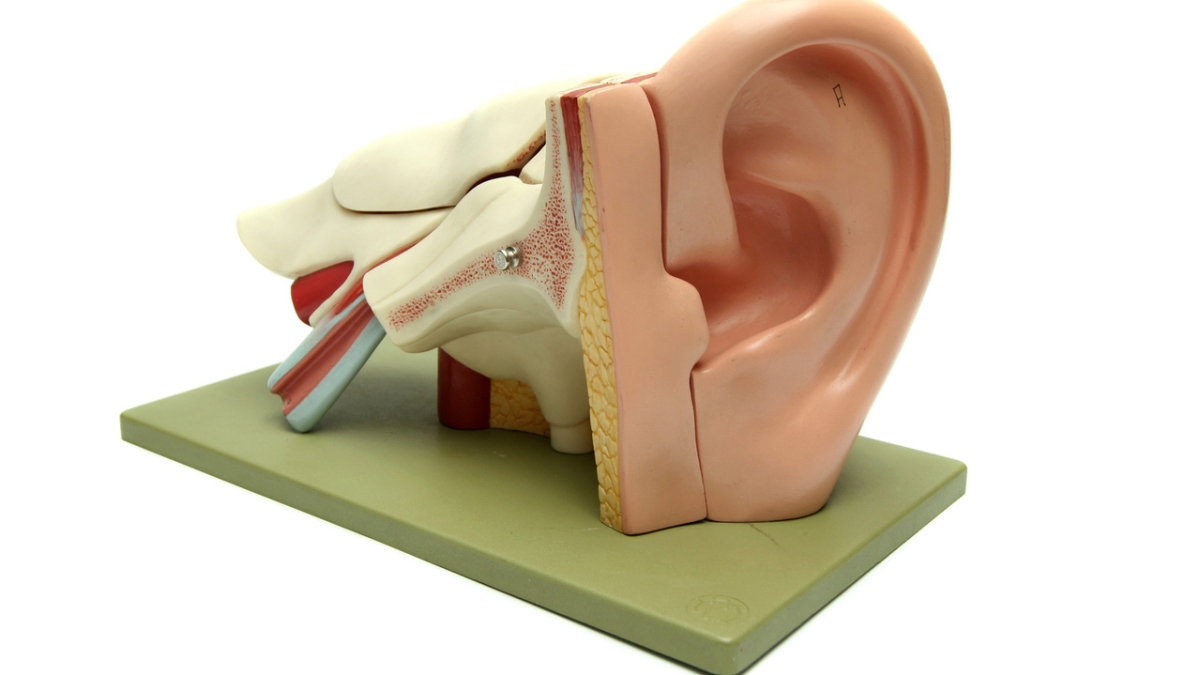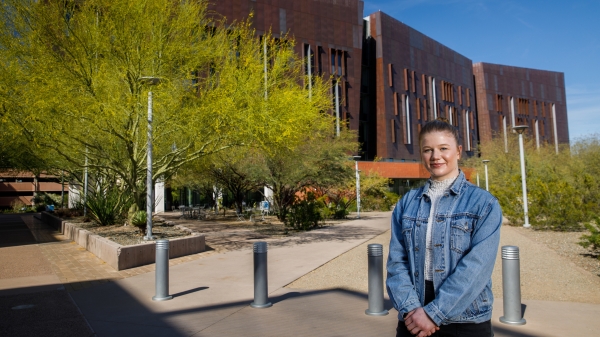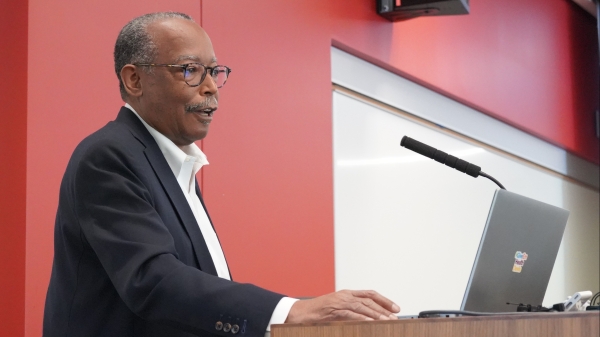The key to healthy hearing
Keep on eye on your ears with free weekly screenings for faculty, staff on four campuses

What does going deaf sound like?
Many people don’t think about hearing loss until it has progressed far enough to become a burden. But there are steps you can take to preserve your hearing throughout the most crucial decades of your life.
Tracey Schnick, manager of Clinical Business Services in the Department of Speech and Hearing Science, provided details regarding hearing screenings, which take place every Monday at ASU. The College of Health Solutions has clinical faculty who work to understand the keys to healthy hearing for everyone from 20-somethings to senior citizens.
“Part of the clinic deals with all kinds of services for the community like diagnostics and rehabilitation,” Schnick said. “It’s state of the art. We provide things like hearing aids and other assisting devices.”
Schnick says the clinic also serves as a training ground for graduate student clinicians. “Our graduate student clinicians are getting practical experience so that at the end of their years here they can become audiologists,” she said.
According to the Well Devils website, hearing loss develops slowly and painlessly. However, there are symptoms that one can be on the lookout for. Confusing people’s words, needing to turn up the TV, and having a feeling that you can hear but not understand speech is just a few of the symptoms that are indicative of hearing loss.
The webpage goes on to recommend that adults have their hearing tested by an audiologist at least once a decade, and then every few years after the age of 50. However, if someone notices a sudden onset of hearing loss or vertigo, it is something they should see their physician about right away.
Erica Williams, Ph.D. and clinical associate professor at ASU’s College of Health Solutions, is one of the audiologists at ASU's Speech and Hearing Clinic.
“What the screenings are designed to do is determine if you need a full diagnostic of your hearing status,” Williams said. “Regardless of your age, the measurement of hearing loss is the same for everyone. Once people come into the clinic, their treatment is on a case-by-case basis.”
The ASU Speech and Hearing Clinic is currently providing free 15-minute hearing screenings to benefits-eligible employees. Remaining dates are Monday, February 22 on the Downtown Campus and Monday, February 29 on the Polytechnic Campus.
Contact Elizabeth.badalamenti@asu.edu to make an appointment for a screening. If an individual fails a screening, a full diagnostic evaluation is needed to obtain a full picture of hearing status. The clinic will provide appropriate referrals. There are certain elements that are inherent to all diagnostic evaluations regardless of the patient’s age, though the evaluation will be tailored to each individual’s hearing health status.
More Health and medicine

First exchange student for Biodesign Institute Europe bridges labs 5,000 miles apart
This spring semester, Grace Colley traveled to Arizona State University and became the first student to participate in the Biodesign Institute Europe student exchange program. In doing so, she helped…

College of Health Solutions hosts visit from leading expert in genomic research
Some fortunate Arizona State University faculty, staff and students were able to gain valuable insights and perspective during a visit by one of the country’s leading figures in health and scientific…

Indigenous ASU research team recommends assistance for tribal members still reeling from COVID-19’s effects
When Matt Ignacio’s tribe, the Tohono O’odham Nation, donated $1 million to Arizona State University to support COVID-19 research, he applied for some of the money to understand and report any…